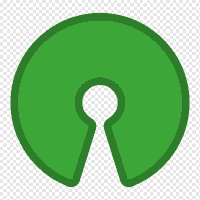
htmly
- 0 ratings

Databaseless Blogging Platform (Flat-File Blog).
Self-host this app for $0.99/mo only!
HTMLy is an open source Databaseless Blogging Platform or Flat-File Blog prioritizes simplicity and speed written in PHP. HTMLy can be referred to as Flat-File CMS either since it will also manage your content.
You do not need to use a VPS to run HTMLy, shared hosting or even free hosting should work as long as the host supports at least PHP 5.3.
Visit HTMLy demo as blog.
HTMLy requires PHP 5.3 or greater, PHP-XML package, and PHP-ZIP package for backup feature.
Install HTMLy using the source code:
htmly.https://www.example.com/install.php and if in subdirectory visit https://www.example.com/htmly/install.php.install.php still exist. Install HTMLy without downloading the source code and use the online installer:
online-installer.php from the latest releasehttps://www.example.com/online-installer.php or if in subdirectory visit https://www.example.com/subdirectory/online-installer.php.online-installer.php and install.php still exist.Set written permission for the cache and content directories.
In addition, HTMLy support admin user role. To do so, simply add the following line to your choosen user:
role = adminUsers assigned with the admin role can edit/delete all users' posts.
To access the admin panel, add /login to the end of your site's URL.
e.g. www.yoursite.com/login
The following is an example configuration for lighttpd:
$HTTP["url"] =~ "^/config" {
url.access-deny = ( "" )
}
$HTTP["url"] =~ "^/system/includes" {
url.access-deny = ( "" )
}
$HTTP["url"] =~ "^/system/admin/views" {
url.access-deny = ( "" )
}
url.rewrite-once = (
"^/(themes|system|vendor)/(.*)" => "$0",
"^/(.*\.php)" => "$0",
# Everything else is handles by htmly
"^/(.*)$" => "/index.php/$1"
)The following is a basic configuration for Nginx:
server {
listen 80;
server_name example.com www.example.com;
root /usr/share/nginx/html;
access_log /var/log/nginx/access.log;
error_log /var/log/nginx/error.log error;
index index.php;
location ~ /config/ {
deny all;
}
location / {
try_files $uri $uri/ /index.php?$args;
}
location ~ \.php$ {
fastcgi_pass 127.0.0.1:9000;
fastcgi_index index.php;
fastcgi_param SCRIPT_FILENAME $document_root$fastcgi_script_name;
include fastcgi_params;
}
}Passwords can be stored in username.ini (where "username" is the user's username) in either plaintext, encryption algorithms supported by php hash or bcrypt (recommended). To generate a bcrypt encrypted password:
$ php -a
> echo password_hash('desiredpassword', PASSWORD_BCRYPT);password field in username.ini. Ensure that the encryption field is set to password_hash.
The built-in editor found in the admin panel, also provides you the ability to write to Markdown files offline by uploading them (see naming convention below) into the content/username/blog/category/type/:
username must match config/users/username.ini.category must match the category.md inside content/data/category/category.md except the uncategorized category.type is the content type. Available content type post, video, audio, link, quote.For static pages you can upload it to the content/static folder.
The default category is Uncategorized with slug uncategorized and you do not need to creating it inside content/data/category/ folder. But if you write it offline and want to assign new category to specific post you need to creating it first before you can use those category, example content/data/category/new-category.md with the following content:
<!--t New category title t-->
<!--d New category meta description d-->
New category info etc.
````
The slug for the new category is `new-category` (htmly removing the file extension). And for full file directory:
````
content/username/new-category/post/file.md
````
File Naming Convention
----------------------
When you write a blog post and save it via the admin panel, HTMLy automatically create a .md file extension with the following name, example:
````
2014-01-31-12-56-40_tag1,tag2,tag3_databaseless-blogging-platform-flat-file-blog.md
````
Here's the explanation (separated by an underscore):
- `2014-01-31-12-56-40` is the published date. The date format is `yyyy-mm-dd-hh-mm-ss`
- `tag1,tag2,tag3` are the tags, separated by commas
- `databaseless-blogging-platform-flat-file-blog` is the URL
For static pages, use the following format:
````
content/static/about.md
````
In the example above, the `/about.md` creates the URL: `www.yourblog.com/about`
Thus, if you write/create files offline, you must name the .md file in the format above.
For static subpages, use the following format:
````
content/static/about/me.md
````
This will create the URL: `www.yourblog.com/about/me`
Content Tags
-------------
If you are writing offline, you need specify the content tags below:
**Title**
```html
<!--t Title t-->
````
**Meta description**
```html
<!--d The meta description d-->
````
**Tags**
This is just the tags display and for the slug is in the filename.
```html
<!--tag Tag1,Tag2 tag-->
````
**Featured image**
Post with featured image.
```html
<!--image http://www.example.com/image-url/image.jpg image-->
````
**Featured youtube video**
Post with featured youtube video.
```html
<!--video https://www.youtube.com/watch?v=xxxxxxx video-->
````
**Featured soundcloud audio**
Post with featured soundcloud audio.
```html
<!--audio https://soundcloud.com/xxxx/audio-url audio-->
````
**Featured link**
Post with featured link.
```html
<!--link https://github.com/danpros/htmly link-->
````
**Featured quote**
Post with featured quote.
```html
<!--quote Premature Optimization is The Root of All Evil quote-->
````
**Example**
Example of how your post would look like:
```html
<!--t Here is the post title t-->
<!--d The meta description d-->
<!--tag Tag1,Tag2 tag-->
<!--video https://www.youtube.com/watch?v=xxxxxxx video-->
Paragraph 1
Paragraph 2 etc.For copyright notice please read COPYRIGHT.txt. HTMLy is licensed under the GNU General Public License Version 2.0 (or later).
Please login to review this project.
No reviews for this project yet.
Private blogging system with markdown editing and built in …
Take control over your blog.
Serendipity (s9y) is a highly extensible and customizable P…
Comments (0)
Please login to join the discussion on this project.